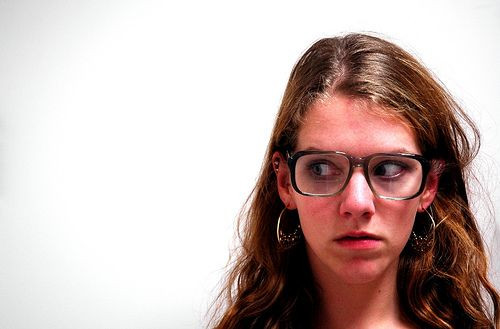Want To Stop Feeling Guilty? Telling The Whole Truth Eases Remorse Better Than Partial Confession

We humans have become particularly skilled at casual lying. We lie to ourselves just to get through a tough Monday. We lie to our spouses about a new hairdo. And we lie to our elders, who may be on (or past) the brink of mental illness — all for the sake of preserving the status quo. But sometimes these lies implode rather than explode, eating away at us for months, even years, and now researchers argue the best way to stop feeling guilty is to own up in full.
A team of experts from Carnegie Mellon University and Ben-Gurion University in Israel has found through four related experiments that people who only divulge some of the information they’ve been keeping secret feel demonstrably worse compared to people who spill their guts, and even to people who don’t confess at all. In other words, you’ll feel even worse if you reveal a partial truth than if you don’t say anything at all. How come?
"Paradoxically, people seeking redemption by partially admitting their big lies feel guiltier because they do not take complete responsibility for their behaviors," lead author Dr. Eyal Pe'er said in a statement. "True guilt relief may require people to fully come clean.”
The Big Four
To investigate the phenomena of confession and guilt, the research team devised a handful of experiments. The first involved a virtual coin-tossing game, where subjects were asked to predict the outcome of each toss, then report how many they predicted correctly. They received a 10-cent bonus for each correct guess. The team found that the more people padded their correct number of guesses, the more likely they’d be to partially confess.
The next experiment built upon the first, this time asking subjects how they felt just before and after they confessed to lying. Those who partially confessed, and especially those who cheated the most, expressed more negative emotions, such as fear, shame, and guilt, compared to those who confessed everything, did not confess, or did not cheat at all. (No one in either experiment knew researchers could access the true results of their tosses, in addition to what they reported.)
The next two experiments analyzed participants’ responses to either personal confession or someone else’s confession. The first asked subjects to recall a time when they had to partially or fully confess to a behavior. Some people described infidelity and lying, while others spoke on past drug use and theft. In any case, the team found that people who fully confessed felt far greater relief with less regret than people who had only partially owned up to their transgressions.
Finally, the team questioned people about a hypothetical subject who was rolling dice, in a similar situation to the first coin-tossing experiment. The man reportedly rolled a six, but after some time confessed to rolling a one. This was to be viewed as a full confession. Another group heard he confessed to rolling a five — a partial confession. The last group received no confession. Ultimately, the researchers were looking for participants’ impression of the man. What they found was full confession was most believable, the partial confession less so, and no confession the least.
Situations Matter
The upshot to all these experiments, the researchers argue, is that confessions take place in a variety of circumstances, and the reception of those confessions does so, too. The consequences of our actions, in this case, dictate much of what we feel compelled to divulge. It’s a utilitarian model that (at least) tries to serve a greater overall purpose, even if the pursuit isn’t noble. Cheating wives convince themselves admitting one act of indiscretion will erase their guilt. Stealing teens confess only to the most recent swipe, as to preserve parental trust, either for good or bad. Unfortunately, in the long run, the safest bet may simply be to come clean.
"Confessing to only part of one's transgressions is attractive to a lot of people because they expect the confession to be more believable and guilt-relieving than not confessing," Pe'er said. "But our findings show just the opposite is true."
Source: Pe’er E, Acquisti A, Shalvi S. “I Cheated, but Only a Little”: Partial Confessions to Unethical Behavior. Journal of Personality and Social Psychology. 2014.
Published by Medicaldaily.com



























